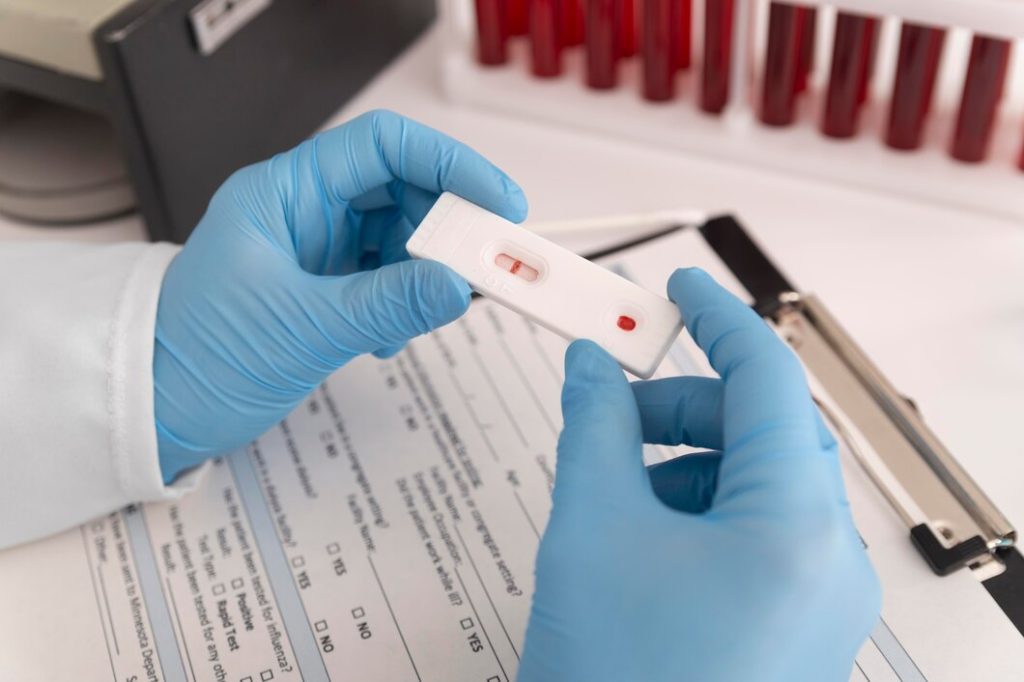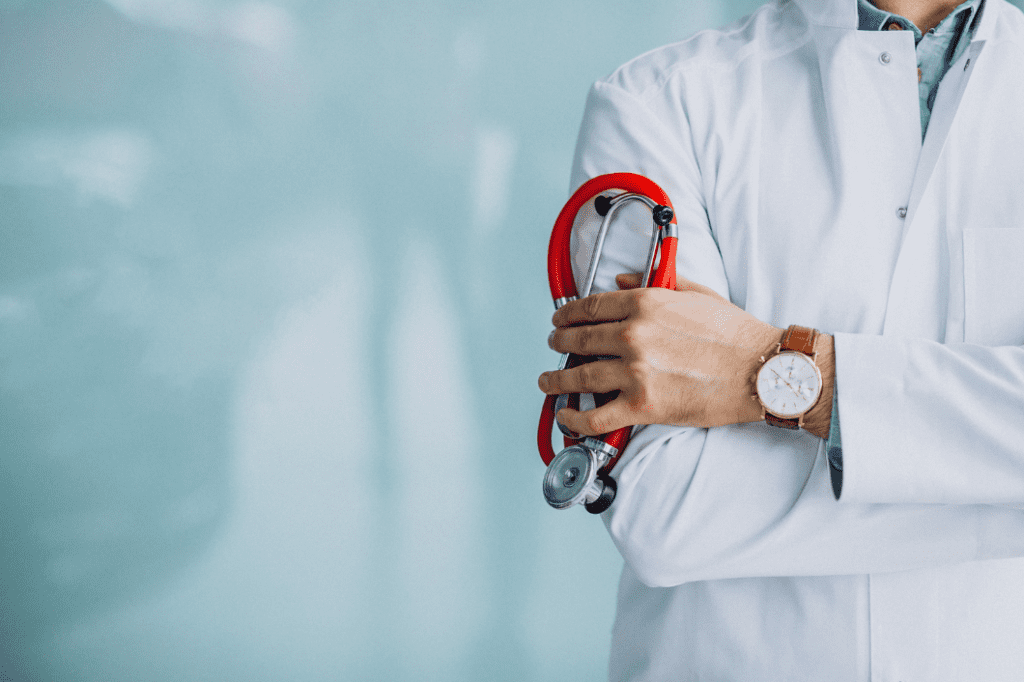STD Testing

Absolute Urgent Care: STD Testing at Our Center
At Absolute Urgent Care, we provide STD testing for common sexually transmitted diseases (STDs). Testing is essential even without symptoms, as it covers diseases like gonorrhea, hepatitis, syphilis, chlamydia, herpes, and HIV/AIDS. Early detection and treatment of STDs prevent serious complications like infertility, pelvic inflammatory disease, and cancer. Therefore, we offer same-day STD testing. Regular STD testing is important to protect yourself and your partner from STD transmission
Symptoms of STD to Lookout for:
To avoid major health issues, it iscrucial to have tests done for different types of STDs to safeguard both yourself and your partner.
- Unusual penile discharge: This may be clear, white, yellow, or green. It could smell bad and be thin or thick.
- Pain or burning sensation when urinating: This may indicate an infection in the urethra, which is the tube that transports urine from the bladder to the outside of the body.
- Penis sores, lumps, or blisters: These can result from some STDs, including as chancroid, syphilis, and herpes.
- Genital discomfort or itching: This may indicate an infection or other condition.
- Testicular swelling: This may indicate an infection in the testicles or the epididymis, the tube that receives sperm from the testicles.
- Fever: This can also be a sign of infection.
- Body rash: This can indicate a variety of sexually transmitted diseases, such as gonorrhea, HIV, and syphilis.
STD Symptoms for Men
- Unusual discharge from the penis: This can be clear, white, yellow, or green. It may be thick or thin and may have a foul odor.
- Pain or burning when urinating: This can be a sign of an infection in the urethra (the tube that carries urine from the bladder to the outside of the body).
- Sores, bumps, or blisters on the penis: These can be caused by a variety of STDs, including herpes, syphilis, and chancroid.
- Itching or irritation in the genital area: This can be a sign of an infection or irritation.
- Swelling in the testicles: This can be a sign of an infection in the testicles or epididymis (the tube that carries sperm from the testicles).
- Fever: This can be a sign of infection.
- Rash on the body: This can be a sign of a number of STDs, including syphilis, HIV, and gonorrhea.
Symptoms of STD in Women
- Painful sex:Sometimes, this may indicate an infection or inflammation.
- Spotting or bleeding during and between periods: This may indicate an inflammation or STD infection.
- Pain in the lower abdomen: This may indicate an inflammation or infection.
Women may encounter sores, lumps, or blisters, as well as odd discharge, itching, pain, or burning sensations when peeing.
Service Offerings
Our STD Testing

We provide discreet STD testing and accurate diagnosis to detect sexually transmitted infections.

To ensure effective management, we offer comprehensive treatment plans tailored to specific STD diagnoses.

Our staff can assist with partner testing and notifications to prevent STD spread and promote responsible sexual behavior.

We offer counseling and educational resources to help patients reduce risk factors, enhance their understanding of STDs, and make informed decisions about their sexual health.
Schedule Your Health Care Consultation
Take the first step towards a healthier life. Schedule your medical consultation today and let our expert team guide you on the path to wellness.

Expert Medical Specialist
Our team comprises experienced health specialist who bring advanced expertise and dedication to every aspect of your health.

State-of-the-Art Facilities
Our cutting-edge facilities and diagnostic technology ensure precise assessments and effective treatments to ensure your health.

Patient-Centered Care
We believe in personalized care, tailoring treatment plans to meet your specific needs and ensuring your voice is heard every step of the way.

Proven Results
Discover success stories and real outcomes achieved through our commitment to excellence in Health care.
Empower Yourself with STD Testing Knowledge
There are a few ways to get tested for an STD. You can go to your doctor’s office, a STD testing clinic, or an urgent care center. Most STDs can be tested with a urine sample, blood sample, or swab of the cervix, vagina, or penis. The type of test you need will depend on the STD you’re being tested for.
Yes, STDs can be prevented. The best way to prevent STDs is to use condoms or other barrier methods during sexual contact. You can also reduce your risk of getting an STD by limiting your number of sexual partners and getting vaccinated against HPV and hepatitis B.
STDs are spread through sexual contact. This includes vaginal sex, anal sex, and oral sex. STDs can also be spread through sharing needles or other drug paraphernalia.
GAINESVILLE

800 W Highway 82 GAINESVILLE, TX 76240
Phone: 940-301-5000
Timings
Monday - Friday
8:00 am - 8:00 pm
Saturday
9:00 am - 3:00 pm
Sunday
12:00 pm - 4:00 pm
PROVIDENCE
















